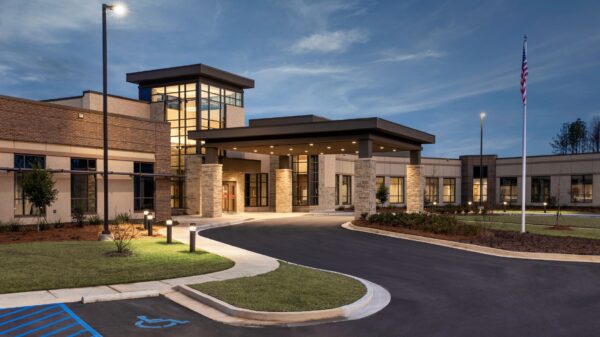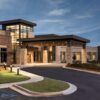Note: This piece was written by State Rep. Tim Wadsworth.
The pandemic Coronavirus outbreak is being treated by the federal government like the home mortgage market collapse in 2008. The federal government is instituting policies designed to reduce the number of hospitalized patients to prevent overwhelming hospital facilities and resources. Social distancing by closing of schools, borders, libraries, restaurants, bars and other places of gatherings are not necessarily designed to rid U.S. citizens of the virus but to reduce now the number of patients that require hospitalization and other medical resources. Alabama has limited hospital beds, ventilators, masks, gloves and other resources necessary to treat coronavirus patients. Social distancing’s benefit is to spread the number of patients that need hospitalization over time, so hospital and medical resources are available.
In 2009, the Federal government offered HAMP (Home Affordable Modification Program Act) that was designed to modify home loans to prevent foreclosure and to show down the number of foreclosures. HAMP was a Federal government’s attempt to slow down the number of foreclosures and provide a runway to spread bank foreclosures over a longer period to keep banks from being overwhelmed with foreclosures, which would cause bank failures. One modification company made $5,000,000 in fees and never modified one loan. HAMP benefited the banks and United States by spreading and slowing down the foreclosures for a more spread out foreclosure process. The 2009 HAMP program is like today’s coronavirus approach to medical care; Reduce the number of hospitalizations and spread the patient hospitalizations over time given the supply of hospital beds, ventilators, tests and supplies we have available.
Ambulatory surgical treatment and rehabilitation centers are generally more modern than our rural hospital facilities. Ambulatory surgical treatment centers are governed by the State Board of Health under Chapter 420-5-2 of the Rules of the State Board of Health. Rehabilitation Centers are governed by the State Board of Health and regulated under Chapter 420-5-11 of the Rules of the State Board of Health. These centers cannot be used for Coronavirus patients now. The use of ambulatory surgical treatment center was designed to be a mini hospital for surgery patients. Rehabilitation centers are intended for physical rehabilitation of those same patients in some cases. The centers’ availability for Coronavirus patients may be needed if hospital bed space is unavailable.
State health department rules state that Ambulatory surgical treatment centers must have a medical director, nursing director, operating room, recovery room, recovery beds and non-nursing service personnel to meet the needs of the patient, CPR training personnel, fire evaluation plan, call system, communication system and a patient transport policy to carry patients to hospitals. A rehabilitation facility has same requirements except no operating room. These requirements are like hospitals. The difference between hospitals and ambulatory surgical centers is patients can only stay at an ambulatory surgical treatment center for less than 24 hours while patients can stay at a hospital for extended periods of time. In a rehabilitation facility, the usage restriction prevents coronavirus patients; “No part of a rehabilitation center may be rented, leased or used for any commercial purpose not reasonably necessary or related to the services the facility is licensed to provide.” Both these requirements under the State Health Department regulation make usage unavailable for coronavirus patients.
State Department of Public Health personnel should review the policies and determine if these rules can be temporary suspended to allow for treatment of coronavirus patients if hospital beds are unavailable. Currently, there are over 50 ambulatory surgical centers and numerous rehabilitation facilities in Alabama.
The State of Alabama needs hospital beds and the beds exist in ambulatory surgical treatment and rehabilitation centers. Many coronavirus patients may need only 3 or 4 days to recover from coronavirus. The restriction of ambulatory surgical treatment center hours to less than 24 hours prevents treatment. The usage restriction of rehabilitation centers prevents treatment of coronavirus patients. State Board of Health with the approval of the certificate of need board should consider temporary and maybe permanently expanding the hours of ambulatory surgical treatment centers and rehab usage requirements to allow both centers’ beds to be used for treatment of coronavirus patients. Many of these centers may have only 5 beds and some have 20 beds or more. Alabama’s patients need unrestricted health care access to a facility with beds during these dire times.
Modification of payment rules for use of the facilities should also be made. For example, an ambulatory surgical treatment center whose patient stays 23 hours will receive 60 percent of the payment that a hospital would receive for the same hours.
Over 50 ambulatory surgical centers, which have recovery rooms, exist in the state of Alabama. With elective surgeries being discouraged by the federal and state government, use of the facilities may be a good option if the State Department of Public Health opens the door and the center chooses to participate.
An outside the box approach should be considered during this critical time in our history. The use of the ambulatory surgical treatment and rehabilitation centers may be the answer to more hospital beds needed for coronavirus patients.




















































